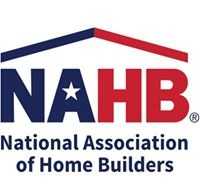Washington, D.C. – (RealEstateRama) — The National Association of Home Builders (NAHB) and a coalition of more than 160 business groups today sent a letter to House and Senate leaders commending them for championing bipartisan legislation that would reinstate the use of Health Reimbursement Arrangements (HRAs) and calling on Congress to act promptly to pass this measure.
Sens. Chuck Grassley (R-Iowa) and Heidi Heitkamp (D-N.D.) and Reps. Charles Boustany (R-La.) and Mike Thompson (D-Calif.) last summer introduced the Small Business Healthcare Relief Act (H.R. 2911 in the House and S. 1697 in the Senate). The legislation would help small businesses provide health care for their employees and protect employers against outrageous fines.
HRAs allow businesses to offer pre-tax dollars to insured employees to help pay premiums and other out-of-pocket costs associated with medical care and services. However, the IRS eradicated HRAs in 2013 and decreed that all employers who are voluntarily providing financial assistance to help employees pay for health care through an HRA are subject to fines of $100 per day per employee. Over the course of a year, that fine would total $36,500 per employee with a maximum fine of $500,000 per company.
“It makes absolutely no sense for the IRS to punish small business owners who are trying to do the right thing by providing HRAs to help their employees to mitigate the rising cost of health care coverage,” said NAHB Chairman Ed Brady, a home builder and developer from Bloomington, Ill. “Any health reform efforts should be geared toward helping hard-working American families. Restoring the use of HRAs will help achieve this goal by allowing home builders and other small businesses to help their employees to pay for health care costs.”
NAHB is spearheading the effort to enact HRA legislation and has worked closely with the Council for Affordable Health Coverage (CAHC) in this endeavor.
“In many cases, the IRS is giving small businesses an ultimatum,” said CAHC President Joel White. “Shut down medical coverage funding for your employees, or shut down your business altogether.”
In its letter to lawmakers, NAHB, CAHC and the diverse business coalition representing millions of American workers reminded lawmakers that the Small Business Healthcare Relief Act is a “bipartisan opportunity to improve affordable health care options for small businesses.”
The letter called on Congress to “move swiftly to pass this vital legislation so that more small employers can help their workers defray the high cost of insurance premiums and/or other out-of-pocket medical expenses.”
CONTACTS
Stephanie Pagan
202-266-8254







